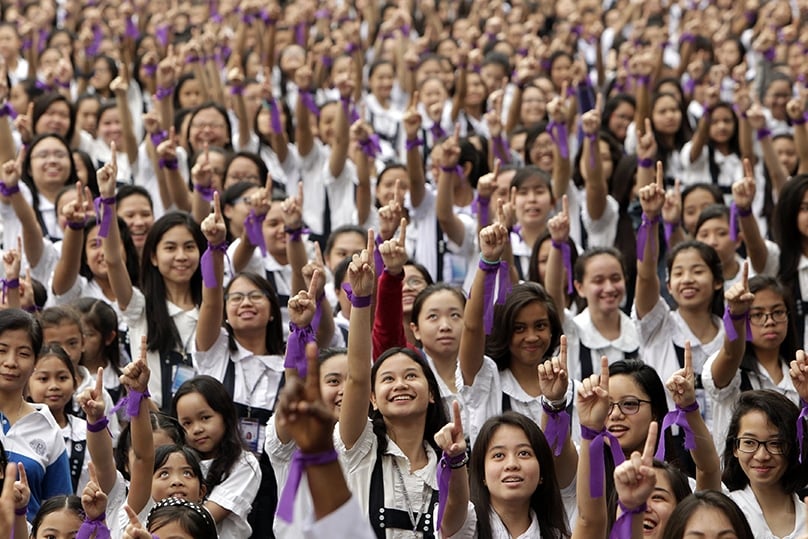
Friday 25 November marks White Ribbon Day, a national day for the prevention of violence against women. The theme for this year is that violence against women is a man’s issue too, and particularly asks men to stand up, speak out and act for the women in their lives.
I agree. One of the roles of men is to guard and protect the women in their lives, and not only against the type of violence which comes to mind when we think about White Ribbon Day. In addition to the horrible stories of violence perpetrated against women by their partners, there are also other forms of violence against women, some of which have been in the news in recent weeks.
Last month, it was reported that a trial of a male contraceptive injection was terminated early due to adverse side effects, the most common of which were acne, injection site pain, increased libido, and mood disorders. The data collected before the trial was cancelled indicated that the injections were 96 per cent effective, which makes it among the most reliable methods available.
By way of contrast, the side effects of the oral contraceptive pill – taken daily by women across the world – include nausea, vomiting, headache, bloating, breast tenderness, swelling of the ankles and feet due to fluid retention, weight gain, blood clots and an increased risk of breast cancer.
I’m not suggesting for a moment that the male contraceptive injection research should be continued. Catholic teaching is clear that the use of artificial contraception is sinful, and not in accordance with the dignity of the human person or the total gift of one spouse to another, and I wholeheartedly agree with the Church on that point.
But I do think that the cessation of the trial is illustrative of a broad acceptance of violence against women, because the oral contraceptive pill is a form of violence against women, both physical and psychological. Convinced by society that the pill is a means to and a sign of empowerment, a woman is encouraged and even expected to daily ingest a product which is doing damage to her.
In addition to taking responsibility for their own sexual “freedom,” the pervasive use of the oral contraceptive pill has ensured that women are also responsible for the sexual freedom (or license) of men. It is these women who suffer violence while the men are let off the hook with respect to their role of guarding, protecting and providing.
Another story we have seen in the past week or so deals with the increasingly widespread use of IVF, and the manipulation of women by IVF clinics. The Australian Competition and Consumer Commission recently announced that several major IVF clinics had been asked to make changes to the “success rates” section on their website following a warning from the ACCC that the information could be false or misleading.
As an example, less than half of the clinics defined “success” as meaning that a baby was eventually born, meaning those considering IVF were given an unrealistic view of their chances of having a baby. They are encouraged to try and try again after failed attempts, often by those who have profit – and not the woman’s best interests – at heart.
Again, I suggest this as a form of violence. For each round of IVF, a woman requires a daily hormonal injection (the side effects of which are similar to that of the pill), an invasive egg harvesting and then embryo implantation, and is tricked into believing that she needs to be persistent if an attempt fails.
This “persistence” is where the misreporting of the success rates comes in. Women over 40 comprise a quarter of IVF patients, but success rates for that age group begin at 5.8 per cent for those aged 41-42 and decrease from there. At 16.2 per cent, the results are not much better for women aged 35-39 (the most frequent IVF users.) The contraception-then-IVF culture is, at its heart, a cycle of violence against women.
There is a pharmaceutical industry which makes its profit from convincing women to ingest hormones so they do not have children during their most fertile periods, and a fertility industry which profits from convincing those same women to inject themselves with hormones in their least fertile periods.
Women are not blameless in this, of course, but it is an issue which needs to be addressed by society as a whole. Because the organisers of White Ribbon Day are right, violence against women – in all its forms – is a man’s issue too.
